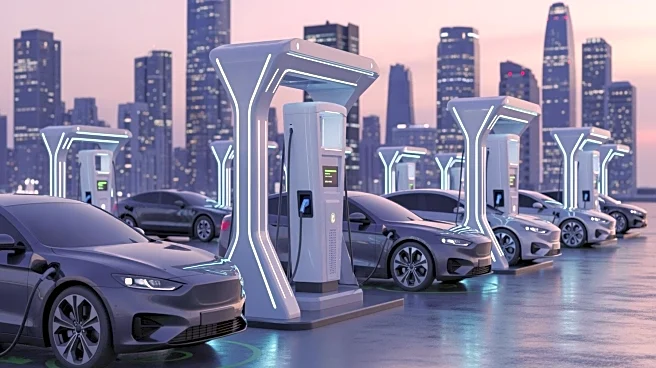What's Happening?
The auto industry is quietly advancing toward an electric vehicle (EV) revolution, driven by significant drops in battery prices. According to industry insights, battery prices are expected to decrease
by 70% over the next five years, making battery electric vehicles (BEVs) more affordable. This price reduction is anticipated to push BEVs below price parity with traditional vehicles in Europe within two to four years, and even sooner in China. The introduction of new EV models, such as the Nissan LEAF and Tesla's Model 3 and Model Y, reflects this trend, offering increased range and affordability.
Why It's Important?
The reduction in battery prices is crucial for the widespread adoption of electric vehicles, as it directly impacts the retail prices set by car manufacturers. Lower prices make EVs more accessible to a broader range of consumers, potentially accelerating the transition from internal combustion engine vehicles to electric ones. This shift is significant for reducing carbon emissions and promoting sustainable transportation. Additionally, the increased variety in EV models and improved range capabilities enhance consumer choice and satisfaction, further driving market growth.
What's Next?
As battery prices continue to fall, automakers are likely to introduce more affordable EV models, potentially offering base trims with sufficient range for everyday use. This could lead to increased competition among manufacturers to capture market share in the growing EV sector. The industry may also see advancements in battery technology, further improving range and efficiency. Policymakers and environmental groups may push for incentives and regulations to support the transition to electric vehicles.
Beyond the Headlines
The ongoing EV revolution may have broader implications for the automotive industry, including shifts in manufacturing practices and supply chain dynamics. The focus on battery technology could drive innovation in energy storage solutions beyond the automotive sector, impacting industries such as renewable energy and consumer electronics. Additionally, the transition to electric vehicles may influence urban planning and infrastructure development, as cities adapt to accommodate increased EV usage.









